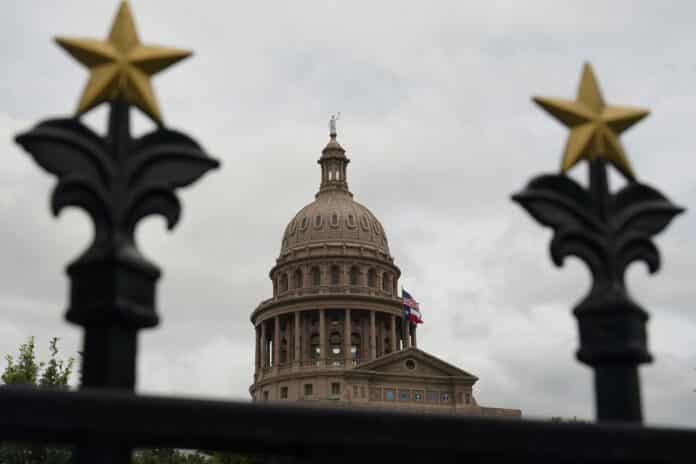The clock inched closer to the midnight deadline on the evening of May 30, and state Rep. Bobby Guerra, D-McAllen, sat at his desk on the House floor waiting for his turn to address his colleagues in opposition of Senate Bill 7.
The polarizing bill introduced and backed by the state’s GOP lawmakers has been touted by Republicans as an attempt to secure election integrity by introducing measures, such as criminal penalties and new offenses, that further prevent voter fraud; while Democrats have criticized it as a means of voter suppression.
For Guerra, it was a call for action.
As he waited that evening, Democrats continued to slowly file out of the chamber in a last-ditch effort to kill the controversial bill.
Guerra planned to give a speech addressing the obstacles faced by many throughout history for the right to vote. He had copies of poll tax receipts paid by his parents in the 1950s, and he planned to use that to draw comparisons to the seemingly new obstacles the bill could potentially institute.
“I was going to make a reference to that,” Guerra said. “I remember talking to my parents about that. They said, ‘It’s never been a problem for us. We were always able to pay for it.’ I asked him what’s the purpose of it, and I remember my dad told me, ‘Son, it’s a way to stop poor people from voting.’”
Guerra said that that conversation had a profound effect on him — so much that he keeps a framed copy of his parents’ poll tax receipts framed in his office.
More Democrats continued to leave the chamber, and before Guerra could make his speech, the Texas House lost its quorum. In total, 62 of the 67 members of the Democratic caucus broke the quorum. Among those who walked out were Reps. Terry Canales, D-Edinburg, and Eddie Lucio III, D-Brownsville.
“I walked out,” Canales said. “To be quite honest, I walked out because that was the decision the caucus had made. My first inclination was that the bill was so bad that had they passed it, it would have been judicially declared unconstitutional.”
“Voting rights are extremely, fundamentally one of the things that as elected officials we want to protect,” Lucio said. “Anything that would suppress a person’s ability to vote is something that, as elected officials, we feel very strongly about. Despite what narrative those proponents of that legislation are using, the fact of the matter is that it would disproportionately impact minorities and those in communities like the ones I represent.”
As time expired on the last day of the legislative session, the bill officially died. However, the rare victory for Texas Democrats is seemingly temporary as Gov. Greg Abbott announced the next day that he would be adding the bill to the agenda for a special session at a yet to be determined date.
“The governor has indicated that he will call a special session to address that,” Canales said. “When that special session is, is up in the air. There’s been no confirmation, but rumors abound. There’s some people that allude to the fact that it’s after July the 4th, some people say we’ll do it when we do redistricting, but there is no confirmation so it’s all speculation.
“There’s plenty of that.”
Guerra agreed. He said that despite the efforts of the Democratic caucus on May 30, everyone was well-aware that the bill would be brought back for a vote at a later date.
“There’s two trains of thought,” Guerra said. “One thought by many is that the bill in and of itself was way too restrictive. We’re stepping backwards instead of going forward when it comes to voting. But I’m afraid that it is postponing the inevitable because the governor has the right to call a special session, and I have a feeling that’s exactly what’s going to happen.”
Lucio said that while he anticipates reconvening for a special session, he would much rather focus his attention on more prudent issues such as the energy crisis.
“We have to come back regardless for redistricting.” Lucio said. “Once the Census data is out, we will come back for a special session because that is mandated and something that we have to do. At that time, it is within the purview of the governor to add different things to the agenda for the special session.”
Lucio further noted the stakes amid an upcoming gubernatorial reelection bid.
“He is up for reelection, and there are certain things that stakeholders within his party want to see done. This is one of those things. It is part of their strategy. It is part of their agenda,” Lucio said. “I anticipate this, or some version of this ‘election reform’ to be on the special call along with other things that we were able to either suppress or defeat during the regular session.
“I am for voter integrity, without question, but I just haven’t seen rampant voter fraud or any of the other so-called issues that they seem to be wanting to identify and justify for election reform.”




